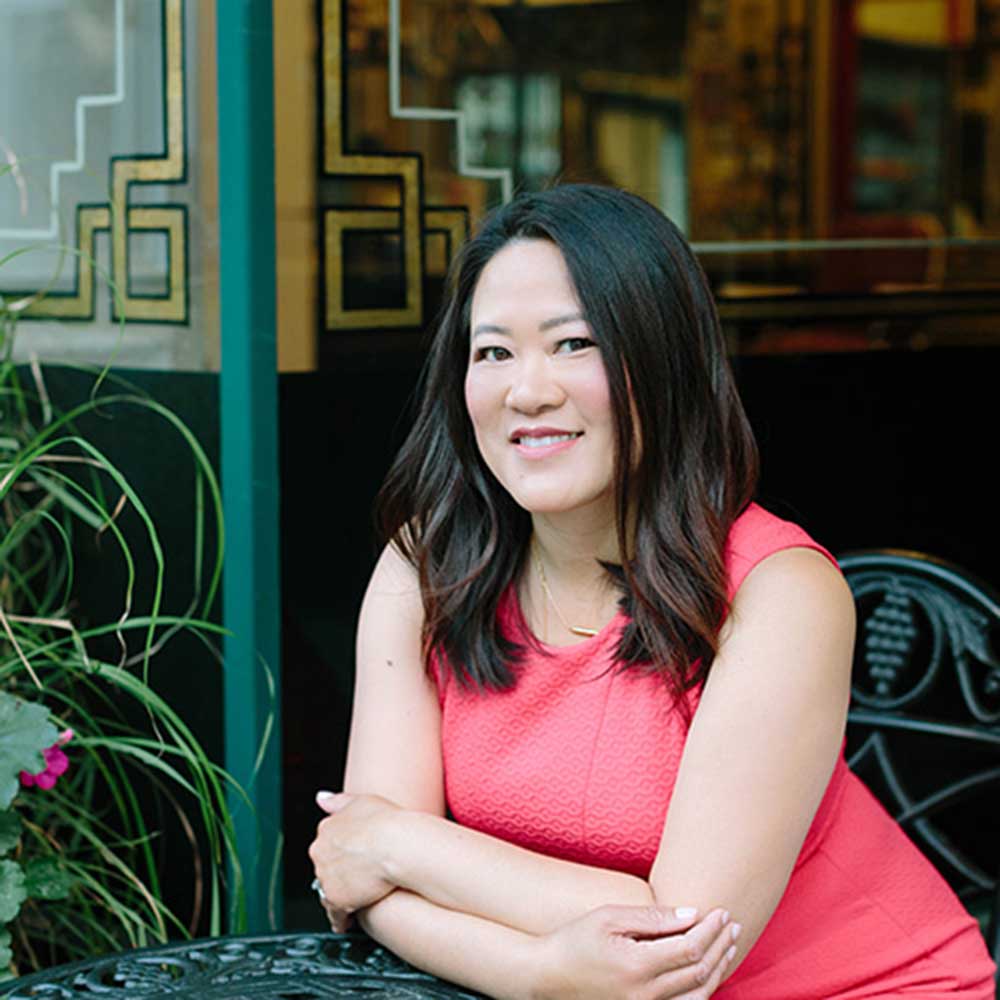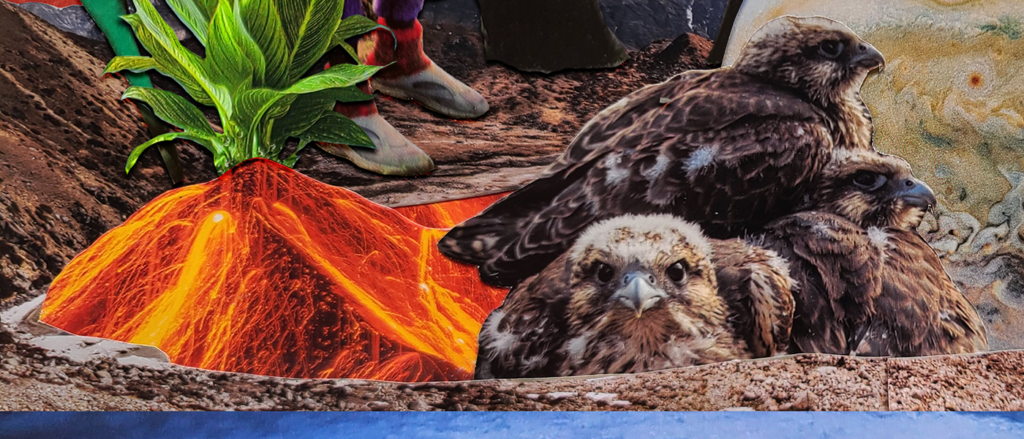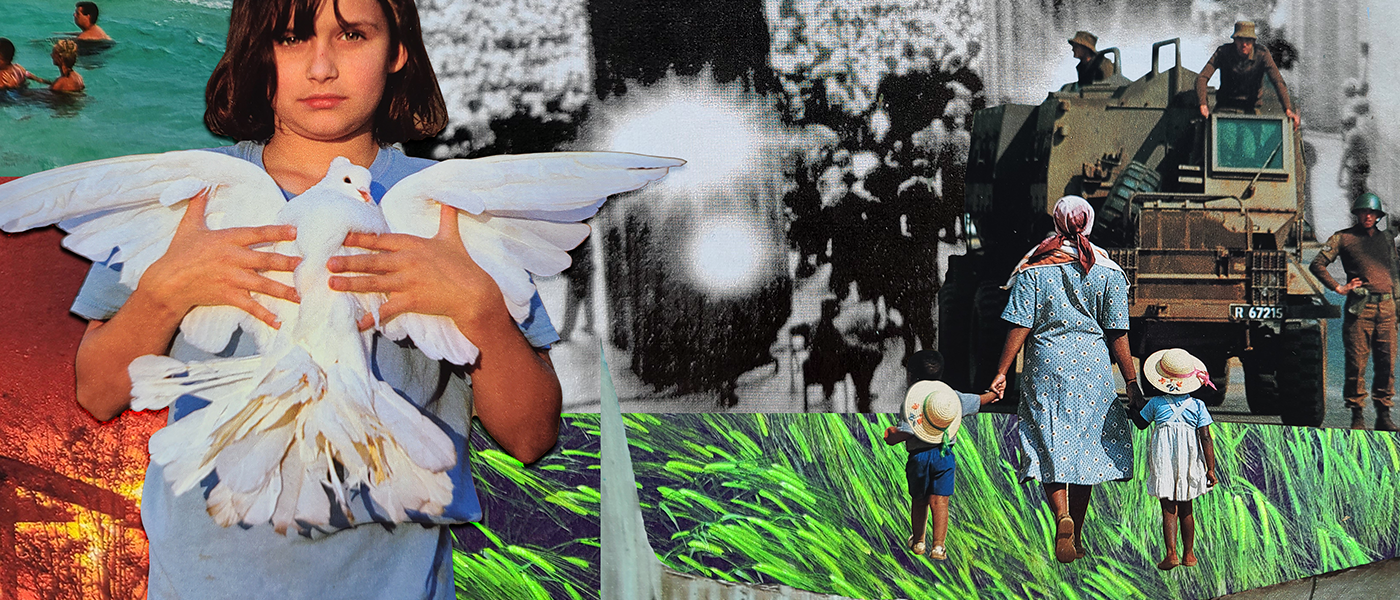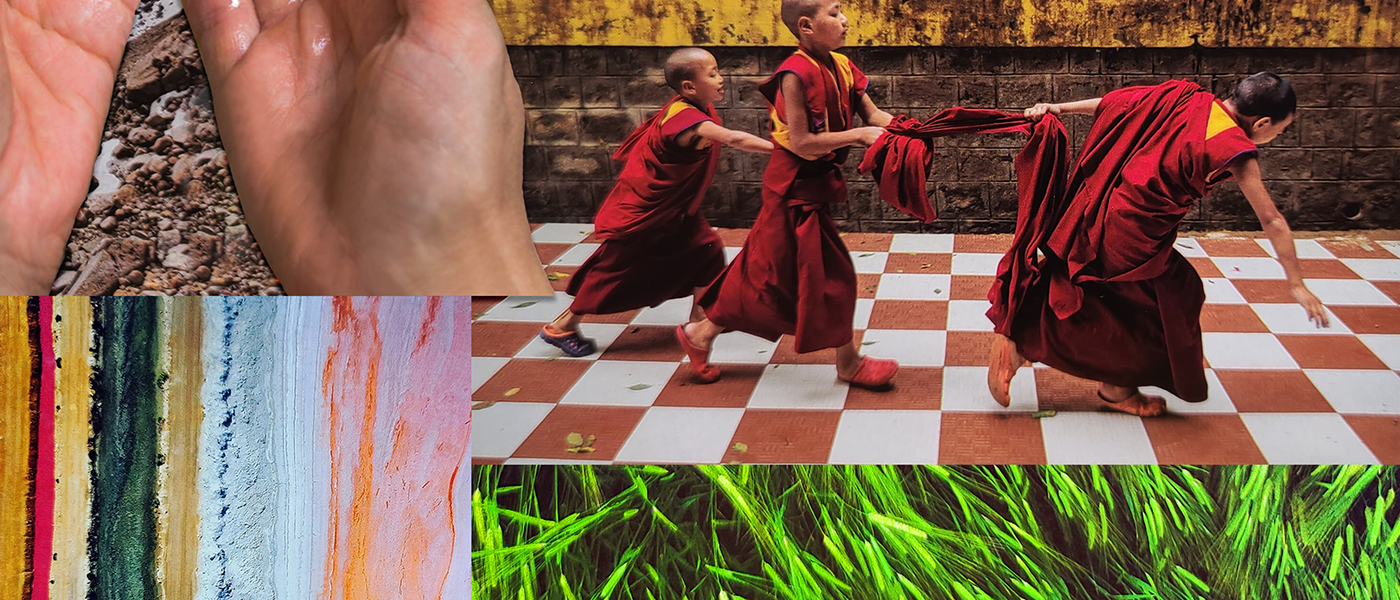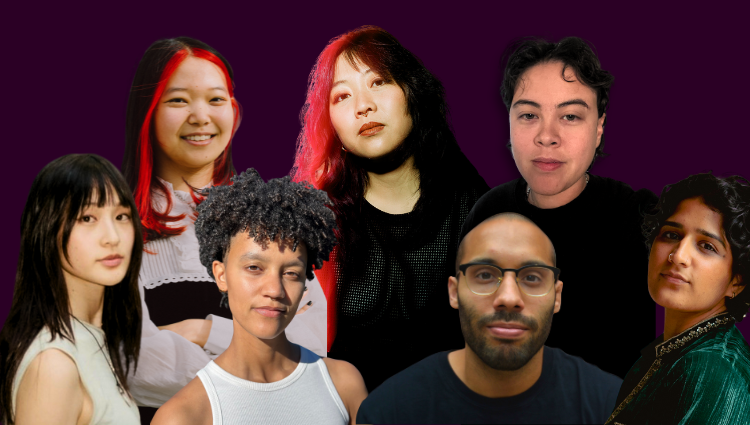At night, when Laura lay awake on her memory foam mattress, she listened and could not hear anything at all. The night was beautiful and lonely, a land untouched by traffic, police sirens, or those strange popping noises that might be gunshots or simply illegal fireworks. Laura lived in a little beige house, with her husband and two children. A street ran before her house, but Laura could not remember where the road went, because she had barely gone anywhere for months. As far as a person could go north in a day or a week there was nothing but vacant buildings. There were no cars on the road. There were no people – unless they were jogging or walking their dog for the third time that day. There were only empty streets and the invisible viruses of the deadly pandemic.
When Laura turned on the TV, she heard reports about people getting sick on cruise ships and from meeting with people who had been travelling and maybe even from touching produce in grocery stores. But the scariest thing was when she watched the news and heard the President of the United States use words like “Chinese virus” or “Kung-flu.” Because of this, some of his followers hated Asians. They sometimes spit on people like Laura, beat them up on the subway, or yelled at them to “Go back to where you came from!” even if, like Laura, they were born in Wisconsin.
Laura wasn’t sure what made the pandemic more dangerous: the risk of dying from COVID or the chance that someone would harass or attack her based on her straight black hair and glittering black eyes. To be safe, she mostly stayed inside her house. At times, the dangers seemed to be only in her head. Maybe she was being overly fearful by staying inside so much. Then again, where were the sounds of life from before the pandemic? The hum of a distant freeway, the clanking of garbage trucks, the laughter of neighbors celebrating into the night. Sometimes, far away in the dark, an ambulance howled. Then it came nearer, and howled again. It was a scary sound. Laura remembered that the coronavirus could kill people who gathered with others outside of their household or ate in indoor dining rooms, so she stayed safe within her solid stucco walls. The house was modest, but seemed adequate in size — at least until shelter-in-place started, when four people and a dog were home at all hours, holding staff meetings on Zoom and attending online classes on Webex. Homemade cloth face coverings hung near the door, at least until Laura’s cousins in Taiwan could send her store-bought KN-95 masks. Good old Jane, the Labradoodle, lay on guard by the front door, in case anyone tried to steal the packages that were sitting outside for three days before they were safe to bring inside.
Workplaces and schools were closing, as were restaurants and hair salons. People were lined up around the block trying to get into gun stores. In the hysteria, Laura could not be sure of finding any toilet paper, much less Clorox wipes. She spent a whole day on a Costco run, as there was a line to get in. Many of the other shoppers were also Asian, looking like a crowd of doctors in blue surgical masks. Laura noticed that the Asians were filling their carts with bottled water, ramen, and sacks of rice. “Those people don’t think for themselves!” muttered another shopper, an older white woman with a pink baseball cap covering her head, but nothing over her nose and mouth.
Laura was embarrassed because part of her was also judging the other Asian shoppers. Hadn’t they learned that in America, one survives by being an individual? But she was more upset about the woman’s comment. Was it racist? Or was it just rude? As an Asian American in the pandemic, she often couldn’t know for sure if someone was bigoted, acting out their political leanings — or both. But if Laura had learned anything in history class, it was that in America, everyone had the right to free speech. So she mustered all her courage and told the woman, “Ma’am, you’re supposed to be wearing a mask.”
“Why don’t you go back to China!” the woman screamed at her. Laura trembled, but the other customers kept looking down at their phones. Apparently they did understand that it’s every man or woman for themselves. Laura sighed. She had heard this kind of vitriol since she was a little girl on the playground in Madison. All she could do was to keep gathering supplies for her own family. The paper goods aisle was empty, as was the meat case. She grabbed a shrink-wrapped six-pack of SPAM and a pallet of ramen noodles. The family was sorry she did not come home with any toilet paper or chicken. Laura was sorry, too, but she told them, “I saved the SPAM. It’s really hard to find any meat, with all the hoarding going on.” Instead of relying on grocery stores, she went to a local bakery and bought a 50-pound sack of flour and one pound of yeast.
Dinners were solemn affairs. Where once they had gone out for sushi at a moment’s notice — all they had to do was walk into a restaurant! Just because they felt like it! — the family now shared the last two chicken breasts from the freezer, as there was an outbreak at the poultry processing plant and she didn’t know when they would be able to buy more. She rationed the rice from the big sack bought before the pandemic, which might have to last them through the shelter-in-place. Never before had she imagined running out of rice, in America, no less! Not having enough rice to eat only happened in stories her parents told of growing up under the White Terror in Taiwan.
For the first time in her life, Laura had to learn how to scrimp and survive independently, without relying on stores or factories. As a schoolgirl in the Midwest, she had learned that the United States was built by brave men and women who crossed the frontier in wagon trains, hunting bison and hoping not to die of dysentery. Little girls on the prairie could find moments of joy making their own candy out of snow and maple syrup and they certainly didn’t cry when there was only cold corn pone and salt pork for supper. So she turned to YouTube to learn how to make things, like people did in the year 2020. She cooked soup with dried beans and created sourdough starter from flour and water. The bread rounds were rustic and crusty, like the kind gold miners might have baked in a Dutch Oven over coals. The discard was made into waffles and pancakes, which were light inside and crispy on the edges and delicious with fresh peaches and whipped cream. But the kids grew tired of this. “Waffles again?” her younger kid complained. She felt guilty that her children lacked gratefulness, probably because she had spoiled them before.
But these frontier foods didn’t bring her comfort. Instead, she hungered for flavors that reminded her of the times before the pandemic, when she could meet friends for tea and dim sum on a weekend. She watched tutorials and learned how to make chhang îu bing, kneading the flour with hot water, and then stretching it flat, sprinkling it with sliced green onions, and then curling it over, jelly roll-style. Then she sliced the spiral crosswise and flattened each round into a thin pancake. She fried one of those scallion pancakes in hot oil and gave it to her kid. The flaky dough crackled as he bit into it, and he asked for more. But the rest would have to be frozen, because it would take weeks before the green onion tops regenerated enough to make more pancakes.
“We never have anything good to eat!” the kid complained.
“Just be grateful that we are alive and healthy,” Laura scolded her child. “A-ma and a-kong went to bed hungry all the time during the olden days in Taiwan. You should be thankful to have three meals every day.”
As the pandemic stretched on into the summer, Laura planted a small garden behind the little house. She was tired of the beets and kale that kept coming in her CSA box. The pamphlet suggested making pesto with the carrot tops, but she ripped them off and hucked them in the green waste bin. She was also still wary about going to a Chinese grocery store in a neighborhood filled with boba and taiyaki shops. Wouldn’t that be the obvious place to be targeted for a hate crime? Even Ma warned her that supermarkets like Ranch 99 and Seafood City were dirty. So she decided to grow her own greens. Heirloom seeds for Asian cucumbers, bitter melons, and watermelons arrived in the mail and she planted them in the ground. Her confidence was growing. There were so many things she could make with her own two hands. Bitter melons were stir-fried with scrambled eggs, like her grandparents ate in Taiwan. She gave watermelons to her parents. “麗華 Li Hua!” her mother exclaimed, “They taste just like the melons I ate as a girl!” Laura was happy, because one could not eat too much fruit. Also, she felt warm and comforted when she was called Li Hua and wondered why she didn’t just use the name her parents gave her all the time.
Sometimes she gave small or misshapen cucumbers to Jane the dog, who batted at them and then crunched them in a few bites. The rest of the cucumbers were pickled with vinegar and sugar, with some Szechuan peppercorns or a Tien Tsin dried pepper or two. When she finally pulled the dying vines in the fall, she was delighted to find two more watermelons hiding under the foliage.
Laura signed up for a baking class via Zoom. When logging on, she decided to change her screen name from Laura to Li Hua, which the instructor pronounced “lee hoo-ah.” Laura unmuted herself to interject, “Actually, my name is pronounced Li Hua.” Afterwards she figured out how to use sourdough starter to leaven fluffy milk bread and wrapped the dough around fillings, such as red bean or curry beef. The little house was filling up with good food stored away for the pandemic.
Summer gave way to autumn, and the virus continued to spread across America. Some of Li Hua’s friends lost parents and grandparents to COVID, and then even people her own age began testing positive. Waking up at two or three in the morning, she grabbed her phone to check the country’s infection rates, news about politics and protests, joblessness and growing inequity. She began to look into moving herself and her family to Taiwan, where everyone wore masks out of courtesy, and the infection rate was so low that schools and restaurants were open. But Ma and Ba didn’t understand. They had sacrificed so much to give her a good life in the United States. “Why would you do that? We have so much freedom in America!” her parents exclaimed (over FaceTime ).
“Please stay safe out there,” she urged them before saying good night to Ma and Ba. More elderly Asians were being attacked on the streets; a man was even knocked to the ground and killed in his own San Francisco driveway. Only when the sun began to peek over the horizon could Li Hua finally fall asleep from exhaustion. Then in the morning, it was time to start the routine all over again.
Wash on Monday
Pickle on Tuesday
Bake on Wednesday
Amazon on Thursday
FaceTime on Friday
Hike on Saturday
DoorDash on Sunday
But the best times were in the evenings, when Li Hua curled up under a blanket on the couch. The whole family gathered in the living room, since the kids had no birthday parties or soccer practices. They turned on Netflix and all watched the same program on the same TV, and for an hour or four, they could forget about the world outside their little house.
Another winter was turning into another spring, and while doctors and nurses were getting vaccinated, Li Hua wasn’t sure if the virus would ever go away. She planted more seeds and baked more bread and kept wearing a mask whenever she left her home. Perhaps in her mind, she would always be living in the pandemic, the way that America seemed to forever be under the spell of the frontier.
